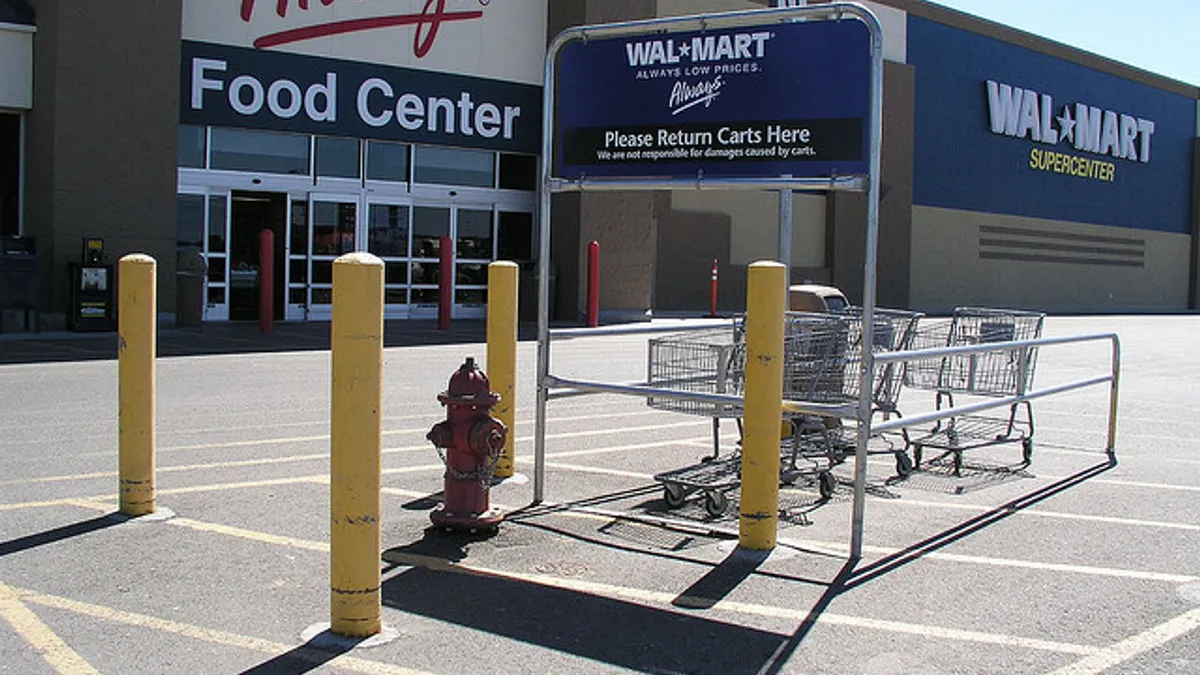Dive Brief:
- Wal-Mart says it’s seeing encouraging results from a new traceability initiative that uses blockchain technology to track products through the supply chain, according to Supermarket News. The system can reveal a product’s journey from source to shelf in a matter of seconds rather than days.
- The test, which tracked pork in China and mangoes in the U.S. market, establishes a digital history for each product, including farm information, batch numbers, factory data and expiration dates.
- Because the new technology could reduce food waste and aid food safety efforts, Wal-Mart sees its blockchain system as a non-compete initiative, and has encouraged collaboration from other retailers and suppliers.
Dive Insight:
Blockchain technology first came to prominence under online currency provider Bitcoin but has since become a highly sought-after secure data system in retail and beyond, with potentially widespread applications in everything from equities trading to online shopping.
Blockchain works by grouping data into individual “blocks” that are secure, inalterable, and can be easily distributed. When it comes to food safety and traceability, blockchain promises to replace the paper records and manual input systems retailers have traditionally relied upon with a fast, automated program.
A digital-first system could be a potent tool during product recalls, which happen daily for retailers nationwide. Knowing exactly where a product has been distributed, and in what quantities, could help stores pull products faster. Blockchain could also help retailers and regulators pinpoint the source of foodborne illnesses. Its ability to instantly lay bare every step in the supply chain, meanwhile, could help improve logistics and reduce food waste.
According to the Centers for Disease Control, 48 million people fall sick each year due to foodborne illness. The U.S. Department of Agriculture estimates that 10% of the food that hits store shelves each year goes to waste.
As promising as blockchain technology is, it hasn’t seen broad-enough implementation to truly gauge its effectiveness. Some experts point to lingering security vulnerabilities, while others say the technology is too expensive and too complicated. Many have called blockchain a “solution in search of a problem.”
In addition to its traceability initiative, Wal-Mart, which announced the results of its traceability test at its annual shareholders meeting in Arkansas, has applied for a patent to track drone deliveries of packages using blockchain. The success or failure of Wal-Mart’s initiatives will no doubt inform retail and other industries about the broader effectiveness of the much-hyped technology.









